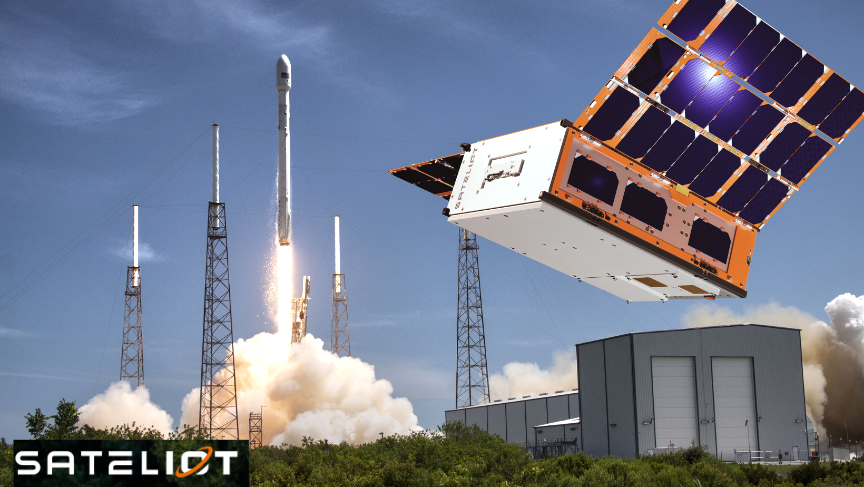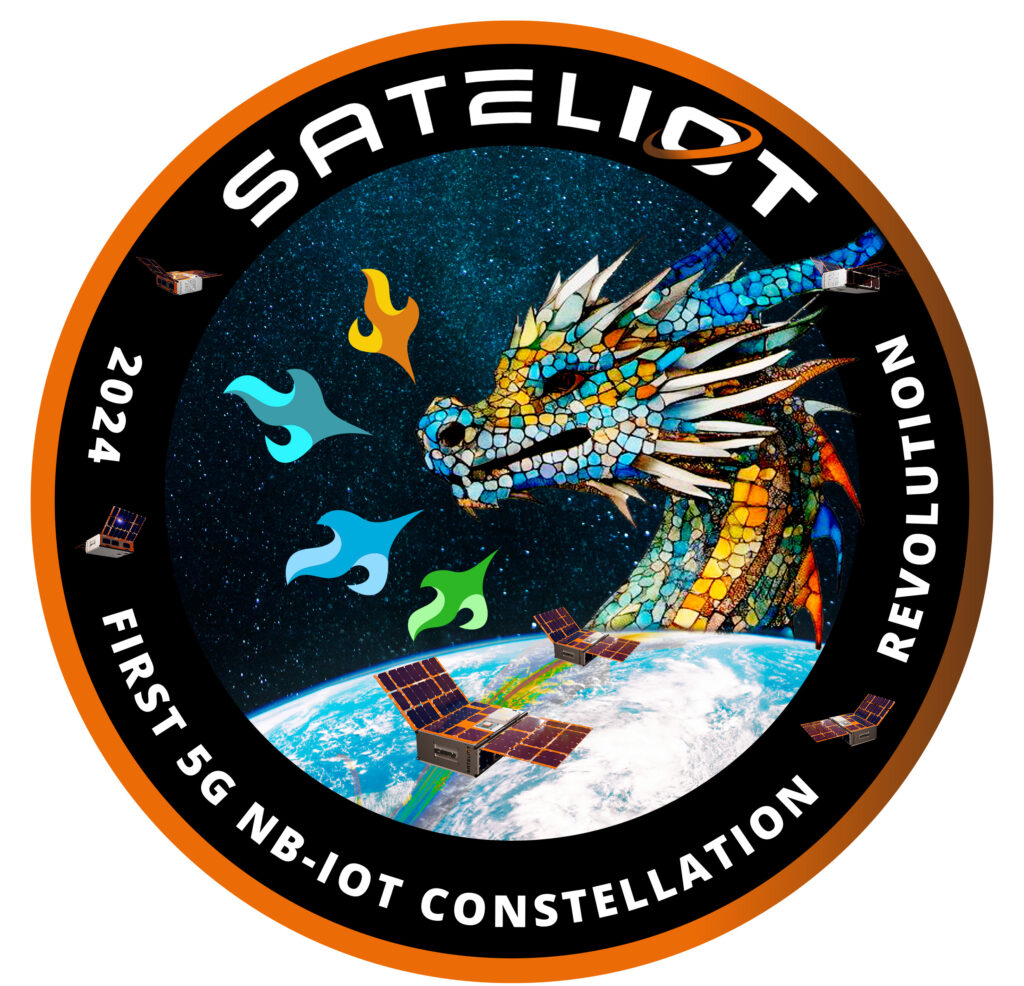
Sateliot has successfully launched four additional satellites as part of the company’s 5G NB-IoT NTN constellation— these satellites, designed to extend the coverage of Mobile Telecom Operators to 100% of the planet, were deployed via the SpaceX Transporter-11 mission.

The launch occurred on Friday, August 16, at 20:18 CET, aboard a Falcon 9 rocket from Vandenberg Air Force Base in California. A special event in Barcelona brought together the Sateliot family and key stakeholders to witness the launch live, featuring support from ESA, GSMA, the Spanish Government, and more.
Presented by Josep Calatayud, director of the “Control de Misión” YouTube channel , the event featured interviews with shareholders, authorities, and employees. Co-founders Jaume Sanpera (CEO) and Marco Guadalupi (CTO) provided in-depth explanations and forecasts for Sateliot’s future.
Re-watch the entire event at this direct link…


Inspired by Antoni Gaudí‘s iconic dragon, the mission badge for ‘Revolution‘ symbolizes the resilience of Sateliot’s technology and the company’s global ambitions. The four flames represent each newly launched satellite, with the multicolored fragments foreshadowing a constellation of more than 100 satellites by 2028. It also represents the revolution of the 5G NB-IoT NTN standard as Sateliot is presented with the opportunity to transform industries worldwide; regardless of location or infrastructure, connectivity black spots will become a thing of the past.
The technology incorporates enhancements from previous satellites and is the first constellation to implement standard GSMA and 3GPP developments fully on satellites. In addition to providing commercial services, Sateliot aims to use these advancements to continue leading the NTN community in future innovations.. Sateliot’s approach, featuring its patented “Store and Forward” technology, offers unparalleled global connectivity with its new orbital plane.
Additionally, the company is advancing a certification program for commercial terminals to expedite the integration of their service into the market. Looking ahead, Sateliot plans to deploy additional satellites by 2025 and is actively engaged in discussions to secure a Series B funding round of 30 million euros.
Since its founding in 2018, Sateliot has raised 25 million euros and aims to achieve revenues of 1 billion euros by 2030. Sateliot’s technology, which initially will connect more than eight million devices from companies that have already contracted the service, is characterized by its democratic and accessible nature. It is designed to support a wide range of use cases for SMEs, public administrations, and large enterprises in sectors such as agriculture, livestock, logistics, and critical infrastructures.
“This launch propels us into a new phase of development,” said Jaume Sanpera, CEO and co-founder of Sateliot. “Not only will we begin generating revenue, but we will also position Spain as a global leader in IoT connectivity.”
